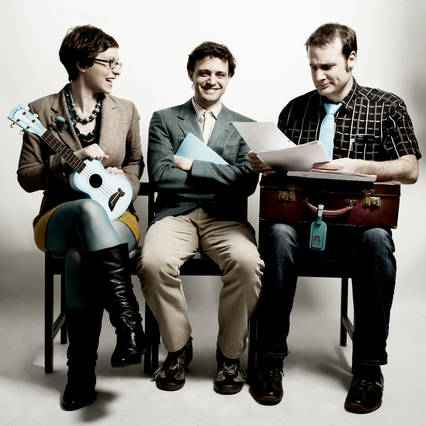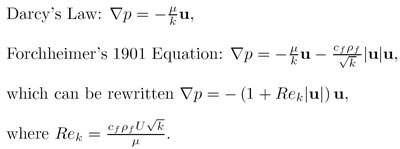Stand Up Maths and the Festival of the Spoken Nerd
Interview with
Matt Parker, the stand-up mathematician joins us this week! He's currently on tour promoting a light-hearted view of science and maths as part of the
Festival of the Spoken Nerd. Hello Matt, tell us a little bit about you...
Matt - As you've mentioned, I sit in a middle of a very weird Venn diagram. I work doing proper maths communication, so I'm based at Queen Mary University of London in the maths department, but I also work doing stand-up comedy. And so, this tour is a combination of both those things. We get to do maths live on stage for comedy audiences.
Chris - The two wouldn't normally be regarded as good bed fellows.
 Matt - No and we're very excited that we actually get to take this on a tour because we started just doing a monthly night in London where there were 3 of us - myself, and other stand-ups Steve Mould and Helen Arney. We began just doing the really nerdy comedy and experiments, and music that we enjoy. And people started to show up to watch it, and we gradually got bigger and bigger audiences, and we started selling out bigger venues. And now, we're being taken on a 22-date tour all across the UK.
Matt - No and we're very excited that we actually get to take this on a tour because we started just doing a monthly night in London where there were 3 of us - myself, and other stand-ups Steve Mould and Helen Arney. We began just doing the really nerdy comedy and experiments, and music that we enjoy. And people started to show up to watch it, and we gradually got bigger and bigger audiences, and we started selling out bigger venues. And now, we're being taken on a 22-date tour all across the UK.
Chris - For the first time.
Matt - Yeah, this is it. So, this is our first ever tour. We're going out, bringing live nerdery to the people.
Chris - Who comes along and listens to maths comedy?
Matt - Well, we try to be very inclusive. We do obviously attract a wide spread with some extreme values of nerds. So hard-core nerds show up and believe me, there is something in there for them, but they tend to also bring friends, partners and members of their family who are not as nerdy. And so, we've worked very hard to make sure that this is also a legitimate comedy show. So you can come, you can enjoy the show without having got a very good 'A' level in maths.
Chris - Or with a very bad 'A' level. How do you actually make maths funny? Tell us a bit about the content of the show, what sorts of things do you discuss?
Matt - We try, in this show, to do all the sciences. We try to do a little bit of physics, so we've got a flame tube which is this flame "graphic equaliser" and we can put different frequencies into it and it responds different ways. I will be solving a Rubik's cube live on stage. I'll also be doing a very dangerous experiment. I'm recreating one of Michael Faradays' experiments from the Royal Institution where I'm using parabolas to set things on fire. So, it's just all our favourite nerdy things that we can do on stage, occasionally involving fire.
Chris - Now listeners who are listening very carefully may have noted that you don't sound local. So how do you come to be here doing this because you're originally from Australia, aren't you? Western Australia?
Matt - Yes, I do strange things to vowels. I'm from Perth originally where I studied and went to the University of Western Australia, where I did physics, and then went on to do maths, and after that, I became a secondary maths teacher. I moved to London about 8 years ago to teach maths and I've gradually shifted from being a normal - I use the word 'normal' carefully - maths teacher in schools into working part-time for a university and also doing comedy part-time.
 Chris - It's quite brave of Queen Mary University of London to say, "let's actually make a job around this sort of thing."
Chris - It's quite brave of Queen Mary University of London to say, "let's actually make a job around this sort of thing."
Matt - Queen Mary have been incredibly supportive. So, I'm their public engagement in maths fellow, and so, a lot of my job is to communicate maths to other people. I do a lot of maths writing and things like this, lots of mass media, but I also work with the academics and the students. And so, a decent amount of my job is training and working with the undergraduates to help them communicate maths to other people and to go into schools and work with young people. I also work with the academics to help them communicate the research they're doing to other people who may not know as much maths.
Chris - Do you actually have any evidence as to whether this translates into a tangible benefit, a measurable benefit for QMUL? In other words, do you see a lot more people applying into maths as undergraduates than you would've done, were you not there?
Matt - Well, Queen Mary do keep a close eye on where people apply from and they can try to find out how they heard about it, but that's much harder to get to. So, we do track numbers of people applying and we do track where they live when they apply to the university, but all the work that I do is not focused just on getting people to come to Queen Mary - although I'm biased, I think it's a great maths department. My goal and in fact, all the outreach work we do at Queen Mary, is to get people excited to do Maths or something science related, but we don't mind which university they go to. We just want more young people going into the science subjects.










Comments
Add a comment